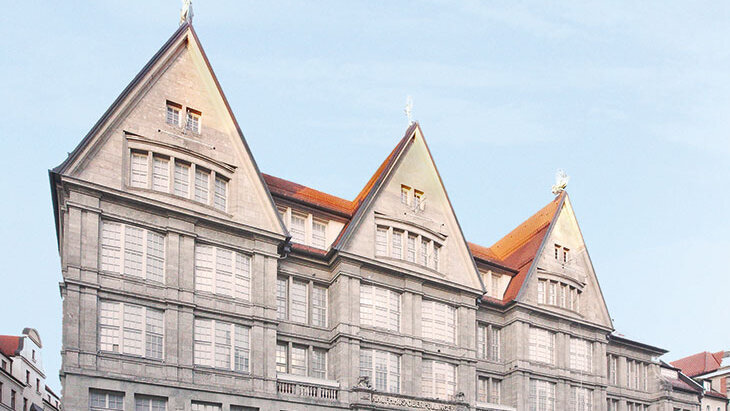Munich, Germany, July 14, 2021. Department stores all over the world are increasingly becoming experience locations which appeal to all the senses and make shopping a pleasure. In Germany, The KaDeWe Group is at the forefront of this development. Its stores – KaDeWe in Berlin, Alsterhaus in Hamburg and Oberpollinger in Munich – are some of the most famous department stores in the world. In the Oberpollinger store, the central feature is the open design created by the British star architect John Pawson. The extensive alteration work was completed during the 2021 lockdown and was supported by the retail and construction management experts from the Stuttgart-based consulting company Drees & Sommer SE.
‘With this alteration project we set a new standard for retail premises in the center of Munich. The modern interior architecture designed and implemented by architects with worldwide reputations, combined with the addition of new brands and numerous experience zones and relaxation areas, creates a distinctive market environment where our clients can enjoy the leisurely and inspiring atmosphere,’ says Alexander Repp, General Manager of the Oberpollinger department store, to explain the goal of the extensive construction work. The traditional department store has been completely overhauled both in the store design and in its structure. The Oberpollinger has also cooperated with renowned concession partners to create a perfect setting for each individual brand area. This means that every brand presents itself in an area which is designed to reflect its brand identity. This concept enables experience zones to be created in small areas which fully reflect the brand and present a varied and inspiring overall shopping environment for clients in the Oberpollinger. In the Beauty department, for example, brand areas such as Byredo and Aesop are situated alongside the area where the beauty brand Guerlain offers its fragrance products in the Cave du Parfumeur, a cabinet which emulates the style of a French wine cellar. And in the Luxury Boulevard, the store areas devoted to brands such as Bucherer, Tiffany and Louis Vuitton are supplemented on the second floor by the Danish jewelery label Maanesten, which offers a feminine, powdery look. Clear linear structures of brass and marble are combined with pastel colors and lush flower installations to create an exclusive shopping experience with an imaginative and creative character.
Modular Elements Save Time and Costs
Concession systems consist of a large number of individual furniture items which can ideally be preassembled on a modular principle. This brings several advantages, as Tasja Schneider explains. She is a retail expert at Drees & Sommer who advises Maanesten in its brand positioning in the department stores of The KaDeWe Group in Berlin, Hamburg and Munich: ‘In such cases we use modular elements to ensure that the construction project can progress more quickly. Time is a particularly important factor when a department store is being redesigned while the store is still open, because every temporary closure of retail space also means a loss of turnover.’ For example, if the counters, shelves or partition walls can be preassembled as modular units, including the electrical cables, this eliminates the need to fit every little screw on the building site. Instead, the individual furniture units are preassembled as far as possible before they are delivered to the site.
This procedure not only saves time, it also avoids noise, dust and waste. ‘Especially in inner city locations which have limited time windows for the delivery of materials, a good system of building logistics is crucial. Every truck which delivers material should at the same time remove from the site any parts that are no longer needed, or any offcut materials. Empty trips are an unnecessary waste of time and resources,’ adds the retail expert.
A Large Number of Project Participants Requires Good Coordination
To minimize any disruption to the operation of the department store, efficient logistics and properly structured planning on the building site are essential. ‘Without good coordination of the participants, such a project can quickly become a nightmare,’ says Anne-Marie Kubik from Drees & Sommer, who was responsible for the construction management. Together with her team she supported the alteration work for the Men’s Wear department on the first floor – including the invitation for tender, award of contracts and project supervision. ‘The Men’s Wear department had previously been on a different floor, so the whole department with its individual brand outlets and floor areas had to be built up as a new area. Good communication, lean processes and a schedule timed exactly to the day are important to ensure that the individual trades do not work at cross purposes,’ adds the construction manager. This procedure was important to carry out the alteration work in the defined time and budget framework.
